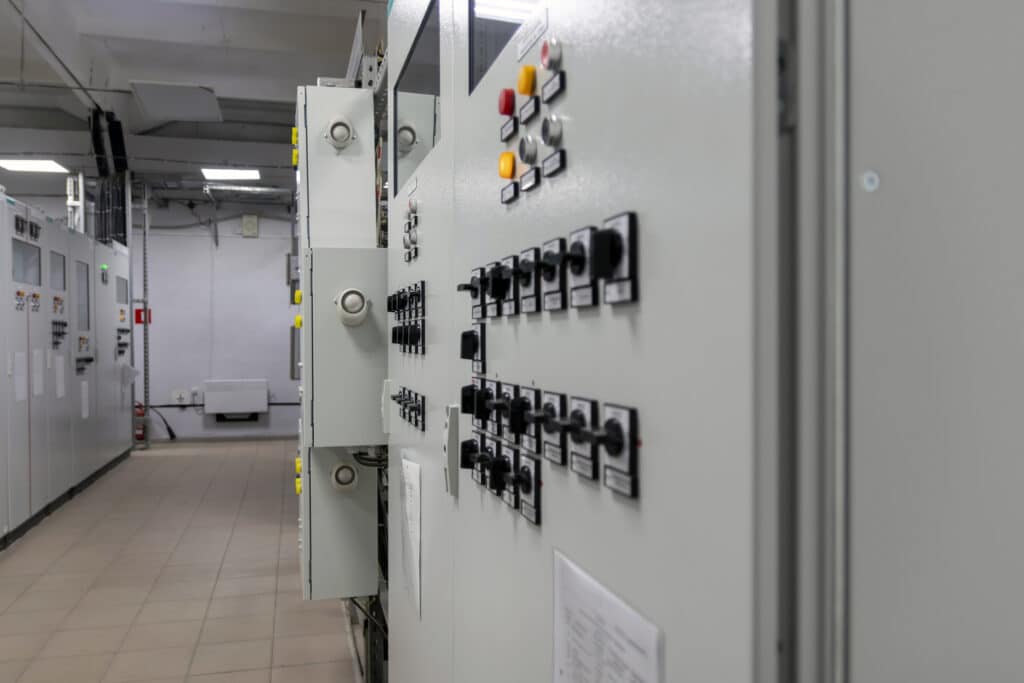
Understanding HVAC Control Panels for Efficiency
Understanding the intricacies of HVAC control panels is crucial for anyone looking to enhance their energy efficiency and maintain an optimal indoor environment. These sophisticated systems serve as the brain behind your heating, ventilation, and air conditioning, automating the process to ensure your space remains comfortable year-round. Whether you’re nestled in the bustling city of Fort Worth, TX, or enjoying the serene landscapes of Azle, TX, getting to grips with how these panels operate can significantly improve your system’s performance.
HVAC control panels are more than just a series of buttons and screens; they are the key to unlocking a seamless integration of temperature control, energy savings, and consistent climate management. By understanding how to effectively use these panels, residents and business owners alike can enjoy a more controlled, efficient living or working environment. This knowledge not only aids in reducing utility bills but also in prolonging the lifespan of the HVAC system itself.
In regions where the weather can be as unpredictable as in Fort Worth, TX, mastering the functionality of HVAC control panels is especially beneficial. The ability to adjust settings to respond to sudden weather changes without manual intervention ensures that indoor comfort is never compromised. Moreover, for those in Azle, TX, where extremes in temperature can challenge even the most robust systems, optimizing control panel settings can make all the difference.
As we delve deeper into the workings of HVAC control panels, remember that this understanding is a powerful tool. It empowers users to make informed decisions about their HVAC systems, leading to improved efficiency, reduced environmental impact, and enhanced comfort. Whether you’re at home or in the office, the benefits of getting familiar with your HVAC control panel are manifold, ensuring that your space remains a welcoming haven regardless of the season.
The Basics of HVAC Control Panels
Diving into the basics of HVAC control panels reveals their pivotal role in managing heating, ventilation, and air conditioning systems efficiently. These panels allow users to set and adjust temperatures, switch modes, and monitor the status of their HVAC system with ease. Such control ensures that whether you’re in Fort Worth, TX, facing the sweltering summer heat, or in Azle, TX, bracing for a chilly winter night, your indoor climate remains exactly how you prefer it. Understanding these functions is the first step towards optimizing your system for better performance and comfort.
Each HVAC control panel is designed with user interaction in mind, featuring interfaces that are intuitive and accessible. This design philosophy ensures that regardless of one’s technical expertise, managing the indoor climate is straightforward and hassle-free. By familiarizing oneself with the various settings and indicators, residents can make adjustments that significantly enhance their living or working environment. It’s about gaining the confidence to tweak settings for an ideal balance between comfort and efficiency.
Moreover, modern HVAC control panels come equipped with advanced features such as programmable settings and remote access capabilities. These features offer unprecedented control over HVAC systems, allowing adjustments to be made even when you’re not physically present. Imagine adjusting your home’s temperature from your office in Fort Worth, TX, or monitoring your commercial property’s climate from Azle, TX, all with a few taps on a smartphone or tablet. This level of control not only adds convenience but also contributes to energy savings by allowing for precise management of heating and cooling.
Lastly, understanding the alerts and maintenance reminders provided by HVAC control panels can prevent minor issues from escalating into major problems. These panels can signal when it’s time for routine maintenance or alert users to potential system malfunctions. By acting on these alerts promptly, homeowners and business owners alike can ensure their systems operate smoothly and efficiently year-round. Such proactive management is key to extending the lifespan of your HVAC system and maintaining a comfortable indoor environment.

How HVAC Control Panels Enhance Energy Efficiency
HVAC control panels play a crucial role in enhancing energy efficiency within any space, be it a cozy home in Fort Worth, TX, or a bustling office in Azle, TX. By enabling precise control over heating, ventilation, and air conditioning systems, these panels help in maintaining an optimal environment without wasting energy. Users can adjust settings to match their exact comfort levels, ensuring that systems are not overworked. This precise control reduces unnecessary energy consumption, leading to a greener, more sustainable operation.
The integration of smart technology with HVAC control panels further elevates their efficiency. Homeowners and business owners can now schedule their systems to operate only when needed, avoiding energy waste during unoccupied hours. For instance, setting the system to activate shortly before returning home or to the office ensures a comfortable environment upon arrival without having to leave the system running all day. This smart scheduling contributes significantly to energy conservation efforts.
Additionally, HVAC control panels equipped with energy monitoring features provide valuable insights into system performance. By analyzing data on energy use, residents in Fort Worth, TX, and businesses in Azle, TX, can identify patterns and make adjustments to improve efficiency. This information helps in pinpointing areas where energy may be wasted and offers guidance on how to optimize system settings for better performance and lower energy use.
Lastly, the environmental impact of efficient HVAC control panels cannot be overstated. By reducing energy consumption, these systems not only lower operational costs but also contribute to a healthier planet. Less energy use means reduced greenhouse gas emissions, aligning with global efforts to combat climate change. Thus, optimizing HVAC control panels is not just about comfort or savings; it’s also a step towards a more sustainable future.
Understanding the Different Types of HVAC Control Systems
Understanding the different types of HVAC control systems is crucial for optimizing energy use and maintaining comfort. Manual, programmable, and smart systems offer varying levels of control and convenience. Manual systems, common in older homes, require physical adjustments, making them less efficient but straightforward to use. Programmable systems, on the other hand, allow users to set schedules for temperature changes, enhancing efficiency without constant oversight.
Smart HVAC control panels represent the pinnacle of convenience and efficiency. These systems connect to the internet, allowing users to adjust settings from anywhere using a smartphone or tablet. In Fort Worth, TX, residents can enjoy a cool home upon arrival by setting their system remotely. This flexibility not only improves comfort but also significantly reduces energy waste by tailoring usage to actual needs.
Zoning systems offer another layer of control and efficiency. By dividing a home or office into zones, these systems allow for different temperature settings in each area. This means residents in Azle, TX, can keep living spaces warm while unoccupied rooms stay cooler, avoiding the energy waste of heating or cooling the entire property uniformly. Zoning systems work seamlessly with both programmable and smart HVAC control panels, providing a customized comfort experience.
Finally, hybrid systems integrate features of both traditional and modern HVAC controls. These systems might use a combination of manual adjustments for basic functions and smart technology for remote access and scheduling. Hybrid systems are ideal for those transitioning to smarter home technology, offering a balance between user-friendliness and advanced features. Regardless of the type, understanding HVAC control panels is key to achieving a comfortable, energy-efficient environment.
The Role of Smart Thermostats in Modern HVAC Controls
Smart thermostats are revolutionizing the way HVAC control panels operate, making it easier for homeowners and businesses to achieve optimal efficiency and comfort. These devices allow for precise temperature control from anywhere, using a smartphone or tablet. For instance, a resident in Fort Worth, TX, can adjust their home’s climate before leaving work, ensuring a comfortable environment upon arrival. This convenience not only enhances comfort but also significantly improves energy efficiency by allowing for more accurate adjustments.
Incorporating smart thermostats into HVAC systems offers the advantage of learning from your habits and adjusting settings accordingly. Over time, these devices can automatically modify temperatures based on your routine, reducing the need for manual input. This means that a home in Azle, TX, can stay cool during the hot summer days without constant monitoring, as the system intelligently adapts to the residents’ schedules. Such automation ensures that energy is used only when necessary, contributing to substantial energy savings.
Another key feature of smart thermostats is the ability to provide detailed feedback on your energy usage. By understanding how and when your HVAC system consumes energy, you can make informed decisions to optimize its performance. This data-driven approach allows for a deeper insight into your system’s operation, highlighting opportunities for further efficiency improvements. Whether it’s a commercial building or a residential property, users can leverage this information to reduce their environmental footprint and maintain a comfortable indoor climate.
Finally, smart thermostats enhance the overall functionality of HVAC control panels by facilitating seamless integration with other smart home devices. This interconnectedness enables a more holistic approach to managing indoor environments, where adjustments to the HVAC system can work in harmony with lighting, blinds, and other systems to create the most comfortable and energy-efficient settings possible. The ability to control multiple aspects of a home’s environment from a single interface simplifies the process, making it more accessible to everyone, regardless of their technical expertise.
Troubleshooting Common HVAC Control Panel Issues
Despite the advanced features of HVAC control panels, users may occasionally encounter issues that hinder their system’s performance. For instance, a common problem in Fort Worth, TX, might be the control panel not responding to input. This can often be resolved by checking the power supply to ensure the panel is properly powered. Additionally, ensuring that all connections are secure can prevent such issues from arising, maintaining a system’s efficiency.
In Azle, TX, residents might face issues with inaccurate temperature readings from their HVAC control panels. This usually stems from a malfunctioning sensor or incorrect placement away from natural airflows. To troubleshoot, verify the sensor’s position and check for any signs of damage. If the problem persists, replacing the sensor can restore accurate temperature control and system efficiency.
Another frequent issue is the HVAC system running continuously, failing to reach the set temperature. This could indicate a calibration problem with the HVAC control panel. Recalibrating the system according to the manufacturer’s instructions can often correct this issue, ensuring the system operates only when necessary. This not only improves comfort but also enhances the system’s energy efficiency.
Lastly, communication errors between smart thermostats and HVAC control panels can disrupt system operation. This is particularly relevant when integrating new smart thermostats with existing systems. Ensuring that both devices are compatible and properly configured can alleviate such problems. In some cases, a firmware update for the smart thermostat or control panel might be necessary to ensure smooth communication and optimal system performance.
Integrating HVAC Control Panels with Building Management Systems
Integrating HVAC control panels with building management systems (BMS) enhances efficiency and operational control. In Fort Worth, TX, businesses can optimize their HVAC usage, seamlessly managing climate control across multiple zones. This integration allows for real-time monitoring and adjustments, ensuring environments are always comfortable and energy-efficient. Such systems are crucial for large buildings where manual monitoring is impractical.
For homeowners in Azle, TX, connecting HVAC control panels to a smaller-scale home management system can offer similar benefits. This setup provides the convenience of adjusting settings through a single interface. Residents can easily control their heating and cooling systems, along with other smart home devices, creating a cohesive and efficient home environment. The result is a streamlined approach to climate control, enhancing both comfort and energy efficiency.
On a broader scale, integrating HVAC control panels with BMS in commercial settings facilitates advanced energy management strategies. It enables facility managers to gather data on HVAC performance, identifying areas for improvement. This data-driven approach helps in fine-tuning system operations, reducing energy waste while maintaining optimal indoor conditions. Businesses can thus achieve a balance between operational efficiency and employee comfort.
Lastly, the future of HVAC management lies in the further integration of these systems with emerging technologies. As smart devices and IoT (Internet of Things) continue to evolve, the potential for even more efficient and responsive HVAC control grows. This advancement promises to make managing indoor climates in places like Fort Worth, TX, and Azle, TX, more intuitive, efficient, and environmentally friendly, setting a new standard for comfort and sustainability.
Key Features to Look for in HVAC Control Panels
When selecting HVAC control panels, users should prioritize models with user-friendly interfaces. These panels simplify the process of adjusting settings for optimal comfort and efficiency, making it easier for residents in Fort Worth, TX, to manage their indoor climate. A straightforward interface reduces the learning curve, allowing users to quickly make changes without frustration. This feature ensures that all adjustments are intentional and effective, enhancing the system’s overall performance.
Another critical feature to look for is compatibility with smart home systems. This integration allows for centralized control of the HVAC system alongside other smart devices, streamlining home management. For homeowners in Azle, TX, the ability to adjust their HVAC settings through a single platform adds convenience and elevates the home automation experience. It also opens up possibilities for more efficient energy use, as systems can be programmed to work together in the most energy-efficient way.
Energy efficiency features are also essential in HVAC control panels. Panels that provide detailed energy consumption reports help users identify how to reduce energy waste. By understanding their system’s energy use, residents can make informed decisions on how to adjust their settings for better efficiency. This not only benefits the environment but also improves the system’s performance by ensuring it operates only as needed.
Lastly, the inclusion of remote access capabilities in HVAC control panels offers unparalleled convenience. Being able to adjust your home’s climate from anywhere, whether you’re at work in Fort Worth, TX, or away on vacation, ensures that you always return to a comfortable environment. This feature not only enhances user satisfaction but also contributes to energy savings by allowing for precise control over the HVAC system, even when you’re not physically present.

Maintenance Tips for HVAC Control Panels
Regular maintenance of HVAC control panels is essential for ensuring the system’s efficiency and reliability. In Fort Worth, TX, where temperatures can soar, cleaning the panel’s exterior with a soft, dry cloth helps prevent dust accumulation that could interfere with functionality. This simple step keeps the interface clear and responsive, making it easier to manage your indoor climate effectively.
In Azle, TX, checking the connections and wiring of HVAC control panels periodically can prevent unexpected system failures. Loose or damaged wires can lead to malfunctions or inaccurate temperature readings, affecting comfort and efficiency. By ensuring all connections are secure, residents can enjoy uninterrupted comfort and optimal system performance.
Updating the software of smart HVAC control panels is also crucial for maintaining system efficiency. Manufacturers often release updates that improve functionality and fix bugs. By keeping the system’s software up to date, users can take advantage of the latest features and enhancements, ensuring their HVAC system operates at peak efficiency.
Lastly, scheduling professional inspections of HVAC control panels and the entire system at least once a year can identify potential issues before they become major problems. A qualified technician can assess the system’s health, calibrate controls as needed, and advise on any necessary repairs. This proactive approach helps extend the lifespan of the HVAC system, ensuring it provides reliable comfort year after year.
Frequently Asked Questions
What are HVAC control panels?
HVAC control panels are the brains behind your heating, ventilation, and air conditioning systems. They automate the process of managing indoor climate, ensuring comfort and efficiency. By understanding how these panels work, users can optimize their system’s performance. This leads to improved energy use and consistent temperature control in any setting.
How do HVAC systems improve efficiency?
HVAC control panels boost efficiency by streamlining the operation of heating and cooling systems. They adjust settings automatically, ensuring optimal performance without manual intervention. This smart automation reduces energy waste, maintaining a comfortable indoor environment. As a result, HVAC systems run more smoothly, contributing to their longevity and reliability.
Can HVAC control panels reduce energy costs?
Yes, HVAC control panels can significantly lower energy usage in homes and businesses. By automating temperature and airflow, these systems ensure heating and cooling efforts are not wasted. This smart management leads to more efficient energy use, which naturally decreases utility bills over time. Users enjoy a comfortable indoor climate while benefiting from reduced energy consumption.
What features do HVAC control panels offer?
HVAC control panels come packed with features to enhance comfort and efficiency. They allow users to set specific temperatures for different times of the day, ensuring a consistent indoor climate. Some models include humidity controls, further fine-tuning the environment. These panels also provide diagnostic information, making it easier to maintain the system and address issues promptly.
How often should HVAC systems be serviced?
HVAC systems should be serviced at least once a year to ensure they are running efficiently. Regular maintenance helps to prevent unexpected breakdowns and extends the life of the system. During a service visit, technicians check for any issues and clean components to improve performance. This routine care keeps your HVAC system in top condition, offering peace of mind and consistent comfort.


